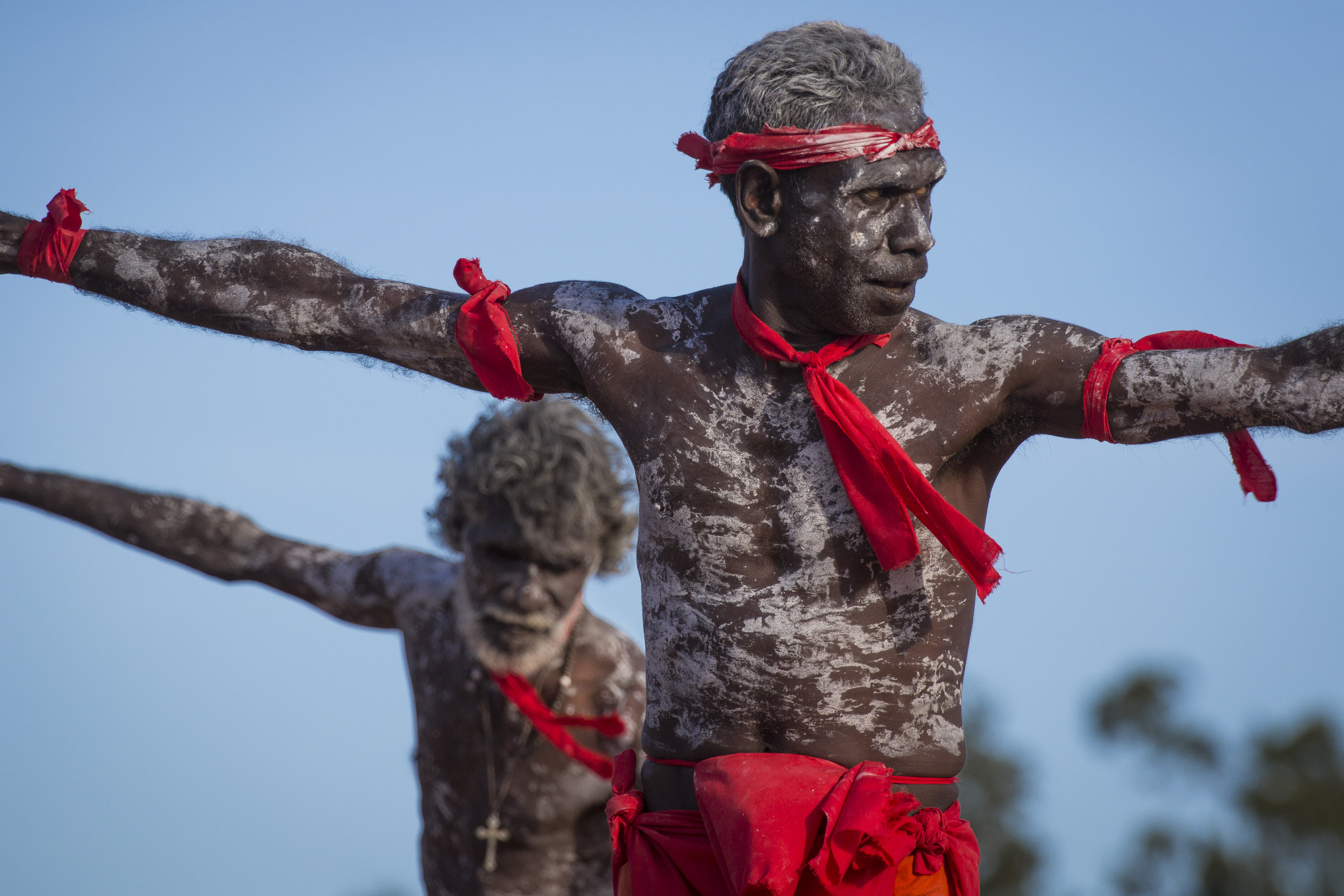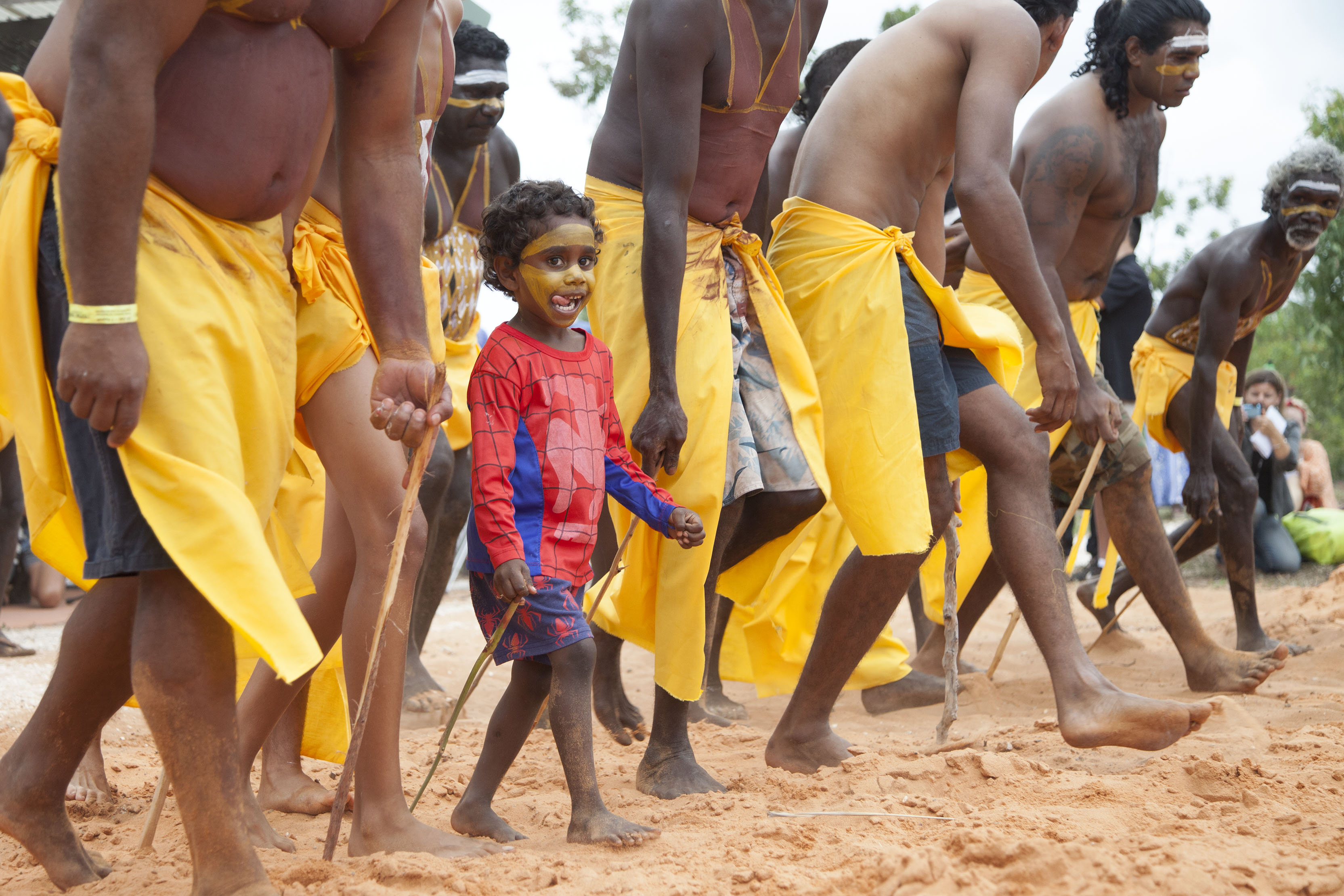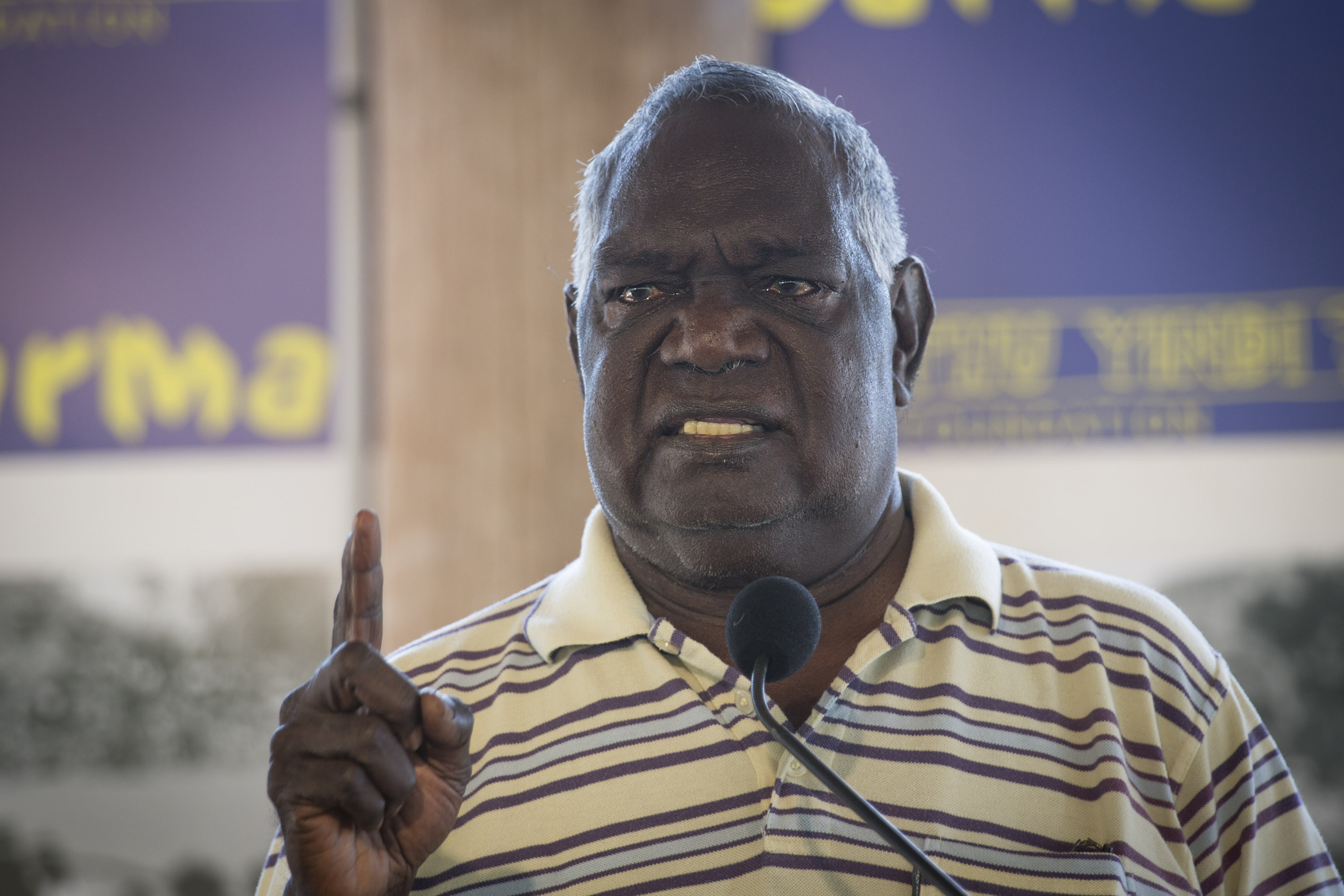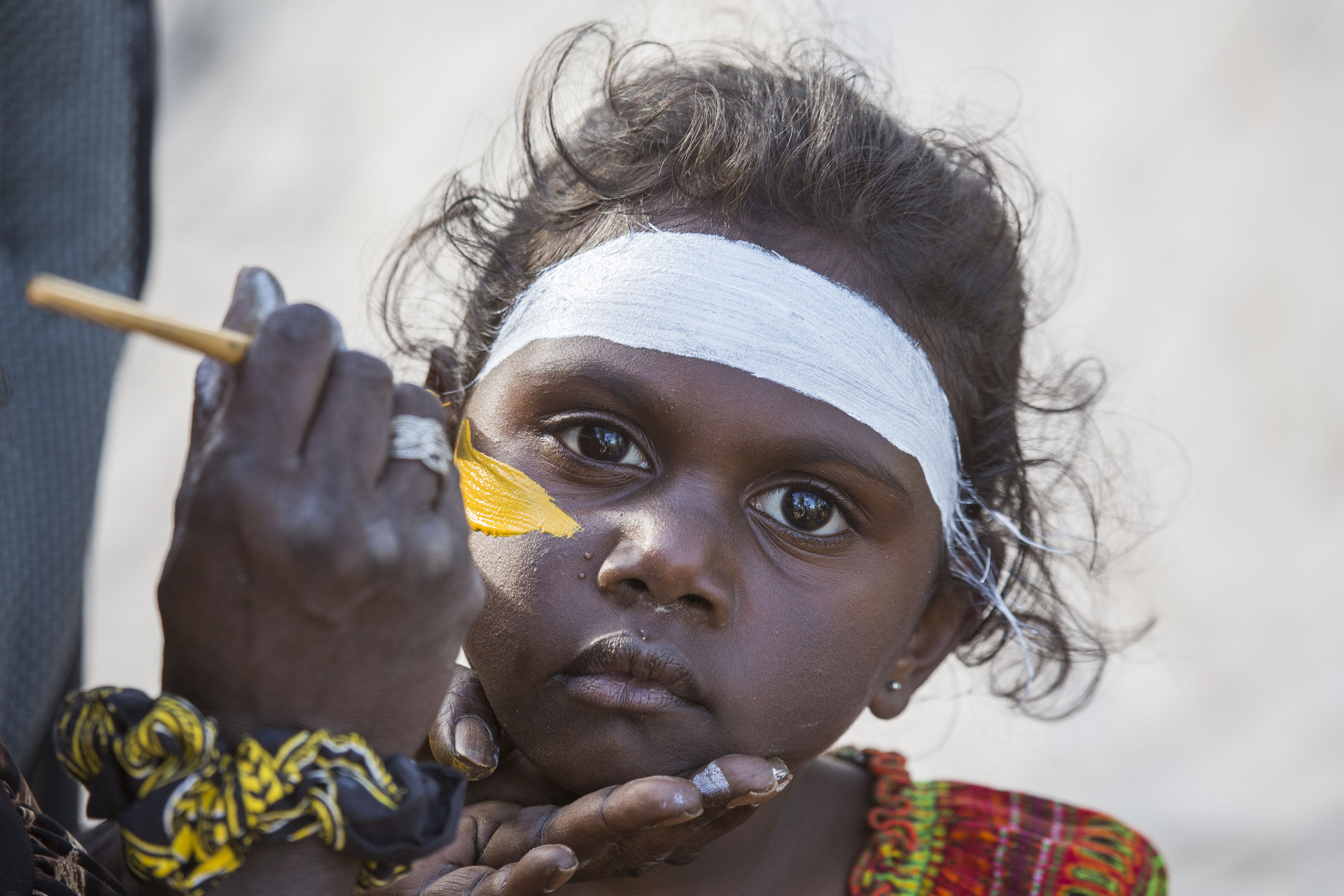Garma 2016: Testing ground for new ideas and alliances

Again this year, Indigenous culture, politics and everyday life was celebrated in ceremony and song
Published 9 August 2016
Garma is perhaps the most significant event on the Aboriginal calendar.
This year the Yolngu people of north-east Arnhem land hosted the 18th Garma Festival and welcomed about 4000 people at Gulkula for a weekend of magnificently curated cultural and policy programs.
Garma draws a broad audience. Visitors ranged from Indigenous leaders, senior politicians, policy makers and corporate Australia, to the intellectually curious.
Yolngu stewardship, key to success of garma
Yolngu leaders, who established the Yothu Yindi Foundation 20 years ago with an ambitious development program to strengthen their culture and economic standing, set the agenda. The songmen and ritual heads led the daily ceremonies on the Bunggul ground, where the dynamic dance groups from each clan bring to life ancient sacred narratives in mesmerising performances.
Garma has national and international resonance, and the visitors from around Australia and the world share in a unique gathering where culture and politics combine to create a testing ground for new ideas and new alliances.
This year the Key Forum program pivoted on the 40th anniversary of the Northern Territory Land Rights Act. The weekend’s emotional hues were starkly chiselled. The Royal Commission in the Northern Territory’s youth detention system that followed revelations on the ABC Four Corners program on practices within Don Dale Youth Detention Centre provided the darkest tones to the discussions. This was particularly so in the background conversations across the various camps.
However, to the other end of the continuum positive and lively policy discussions were held in relation to issues such as constitutional reform, family violence and Yolngu education.

Dr Galarrwuy Yunipingu, leader of the Gumatj clan on whose land Garma occurs, and Master of ceremonies for the festival, set the tone early in the program with a speech on the history of the Northern Territory Land Rights Act. His assessment was damning:

Dr Yunipingu argued that the Act worked in the interest of developers, not providing Yolngu with secure title nor a means for economic development.
His disappointment was profound. It was sobering to realise that he is one of few leaders involved in the development of this Act who is still politically active.
Others have passed on, including prime minsters Gough Whitlam and Malcolm Fraser, and Edward Woodward, the jurist and former Chancellor of the University of Melbourne who laid the legal groundwork for development of the Northern Territory legislation.
Constitution? treaty? not an either/or discussion
Noel Pearson made a pivotal intervention in the debate on constitutional reform. Recently the momentum for this discussion has foundered in part through the failure of the political leadership in Canberra. More recently it has fractured further with some Indigenous activists shifting the focus of the conversation to treaty negotiation rather than constitutional reform.

Pearson argued that both constitutional reform and a treaty were necessary but it is not an either/or discussion. And that the success of constitutional reform depends on finding a path that brings the constitutional conservatives and Indigenous treaty activists along together. In his words:
Pearson acknowledges this is a difficult challenge, one that requires strong and clever leadership. Otherwise we’re likely to shoot the horse in the middle of the desert, then see if it can walk its way home.
Significant discussions, challenging agendas
Significant policy discussions pointed to the emergence of new thinking and the consolidation of action on some challenging agendas. The growing strength of a national coalition to address family was particularly evident.
Charlie King founded the No More campaign a decade ago. Indigenous men in the Northern Territory had strong views on how men should care and look after their family in a positive way. The power of this work was evident by the testimony of a number of Aboriginal leaders such as Josephine Cashman, Marcia Ella, Gail Mabo and Andrea Mason.
Yolngu education was a significant focus on the agenda with an education forum showcasing its history and a new partnership for teacher education forged between the Yothu Yindi Foundation, the Northern Territory Department of Education and the University of Melbourne.
The other significant thread to the Garma 2016 was the participation of Australia’s business leadership who are now deeply engaged on the agenda to improve Indigenous employment and the engagement of Indigenous business through their supply chains.
Behind all the politics and rhetoric, Garma is a place where Indigenous Australians talk about their ordinary hopes and dreams.

Providing at times a necessary check on political manoeuvring, the everyday concerns of Indigenous peoples remind us that for many, the most pressing questions are very practical and hands on.
How can you make solar power a reality for outstations where the costs of diesel generators are prohibitive?
How can access to renal dialysis treatment close to home become a reality given the appalling levels of end-stage renal disease in northern and central Australia?
How do we move past destructive politics to make it possible for young Aboriginal children to learn to read and open up the world to them?
Garma is all of this. It’s the emotional highs and lows. It’s a place for politics and the practical questions of day-to-day life.
As ever it did not disappoint to provide that wild ride and to shift the agenda.
Banner image: Yolngu clans perform bunggul (ceremonial dance) at Garma in Northeast Arnhem Land. Picture Melanie Faith Dove, Yothu Yindi Foundation

